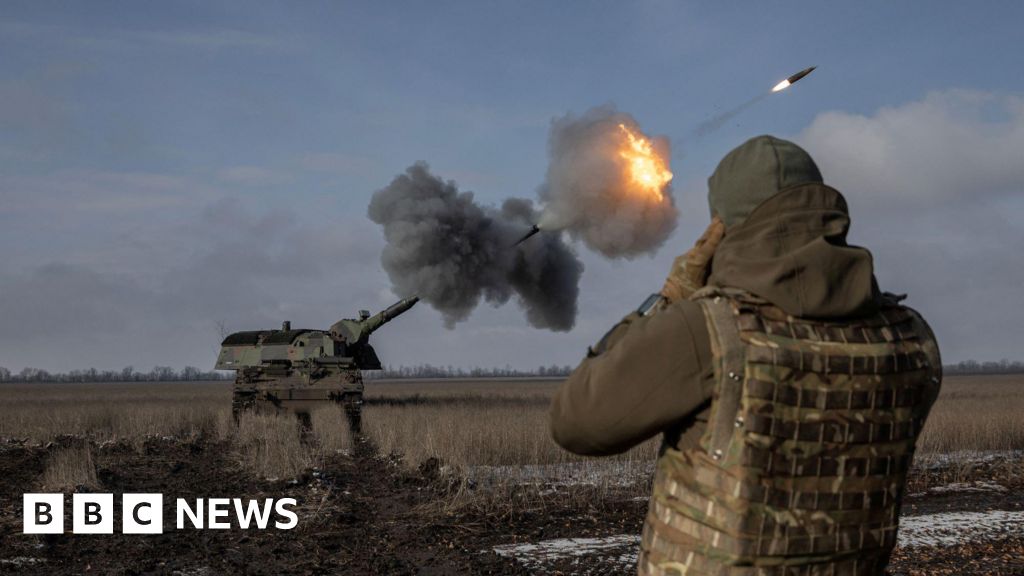This time, joint bonds really might forge a more united Europe.
With Donald Trump triggering the biggest reordering of the European security landscape since World War II, debt issuance may not sound like the most urgent matter in hand, but supporters of a more deeply integrated European Union reckon bonds for rearmament are crucial to realizing their federal dreams.
Trump's insistence that Europe will have to step up and look after its own regional security — and provide Ukraine with security guarantees against Russia — is pressing the EU to raise cash fast for military investments.
Only six weeks after the United States president's inauguration, the European Commission announced a plan to raise
€150 billion of joint debt to finance European weapons purchases. It's a large sum for EU-level bonds, outstripping Russia's
entire projected military spending for 2025.
The debt is up for discussion at Thursday's summit of EU leaders in Brussels, but no one is digging in their heels. In the past, frugal countries like the Netherlands fought against common borrowing, but Germany's support has swung the dynamic of the conversation. The EU is now aligned on the need to spend big on weapons.
For supporters of a stronger EU, issuance of joint debt brings them closer to their long-desired "Hamiltonian moment" — a reference to the efforts of first Secretary of the Treasury Alexander Hamilton, who helped unify the U.S. by consolidating the debts of disparate states into federal bonds in 1790.
This is not the first time that the EU is raising common debt. There was massive investment during the Covid-19 pandemic to prop up Europe's floundering economy. But that agreement was thrashed out painfully over the course of nearly five months.
The pandemic was also seen as a one-off emergency. The need to rearm is a long-term refocusing of what Europe is all about, and the €150 billion is likely to be only the first step.
When announcing the joint debt plan, Commission President Ursula von der Leyen said the response from European capitals to "an era of rearmament" had been "as resounding as it is clear."
“The real question in front of us is whether Europe is prepared to act as decisively as the situation dictates. And whether Europe is ready and able to act with the speed and the ambition that is needed,” she
said in a speech. “This is a moment for Europe. And we are ready to step up.”
The bond issuance will allow the Commission to lend money to member countries to buy weapons, which the capitals will pay back to Brussels.
In parallel, a political reorientation in the bloc's largest economy, Germany, has meant the traditionally frugal country is finally changing its attitude toward debt in order to finance a modernization of its underpowered military. It also suggests a newfound German openness to fund investment at a European scale.
Taken together, these are changes that will be difficult to reverse, even if peace returns.
“In view of the threats to our freedom and peace on our continent, 'whatever it takes' must now also apply to our defense,” Germany's chancellor-in-waiting, Friedrich Merz,
said earlier this month, echoing former European Central Bank President Mario Draghi's call to arms from the eurozone debt crisis.
“What happened in Germany is a huge change,” said Florian Schuster-Johnson of Dezernat Zukunft, a nonpartisan, economy-focused think tank in Berlin. “And this change will also be very, very consequential for European policy.”
Creatures of war
Guntram Wolff, senior fellow at Bruegel, said the EU's move could prove as fundamental as the "Hamiltonian moment" that sped up the transformation of the U.S. from a loose confederation of polities into a nation-state with centralized spending powers.
“If this happens — more military integration together with more joint funding — then we are really in the creation of a completely new EU,” he said. “That’s really a mega Hamiltonian moment.”
The entanglement of finance with war has a long history. Arms are expensive, and governments look for new ways to raise finances in war. Those innovations tend to stick around long after the emergency has passed.
Take the Bank of England, founded in 1694 against the backdrop of the Glorious Revolution and war overseas.
“In the statute that created the Bank of England, the only purpose it gave was conducting the war against France,” said Harold James, an economic historian at Princeton University. The bank took over government debt raised to fund England’s military, backing it with tax receipts raised by parliament. “It’s specifically put in the statute. It’s absolutely the creature of war,” James said.
Likewise, France created its own central bank in 1800, which helped finance the Napoleonic wars.
Ever closer union
Something similar is going on now at the European level, analysts say. The move toward defense by potentially enormous debt financing seems “to be actually going back to how people thought about this in the 18th and 19th century,” James said.
“It’s not necessary for a state to have its own money. Early modern states often operated with all kinds of coinages … But the states do need to defend themselves,” he added. “They need an army.”
The war in Ukraine has also forced European policymakers to consider major fiscal adjustments that were previously unthinkable — and which have long been seen as a first step toward a deeper union.
Germany's relaxation of its debt brake for the military is, at first glance, strictly a national decision — one that it will put to the vote in its lower house on Tuesday. But the jettisoning of the national taboo on debt suggests a softening of its long-held fiscally conservative stance at the European level. It's in Berlin's interest that if it goes further into debt to help defend the bloc as a whole, its partners do so as well, since all EU countries benefit from collective security. Indeed, it's notable that Berlin has not opposed the Commission's joint debt proposal, provided it's disbursed as a loan that countries have to repay, and not as no-strings-attached grants.
“Suddenly a country that in the past was saying we have to balance the budget and we should not allow debts to increase, even to finance investment of whatever kind, turns around 180 degrees,” said the Belgian economist Paul De Grauwe. “You will change your mind when somebody has a gun against your head.”
Since the EU’s formation, its treaty has called for an “ever closer union,” but national governments across the bloc have always been wary of surrendering powers to a central EU administration — and of any moves that could make them liable for their neighbors’ debts.
The recent moves could represent a significant reversal in that direction after years of bickering.
What comes next is another question.
So far, the Commission’s borrowing is indirectly financed by the EU budget, but that has severe limits. To raise more money, the Commission will need to find ways to raise taxes. It will then be able to issue bonds on the market backed by taxpayers, just like a sovereign country does.
Levying taxes will prove tricky because EU taxation requires unanimous agreement. In the past that's been a no-go for capitals jealously guarding what they see as a national prerogative. Even in the wartime context, it remains a difficult prospect as long as Ukraine- and EU-skeptical leaders like Hungary's Viktor Orbán have a seat in the Council.
Waltraud Schelkle of the European University Institute in Florence said that something would have to give: “It’s not credible in bond markets if you borrow a trillion with a budget that is exactly that … a capacity to tax will have to be created at the EU level.”
Marco Buti, who served as chief of staff for former Economy Commissioner Paolo Gentiloni, saw parallels with the EU’s coronavirus recovery fund.
In 2020, the Commission also relaxed fiscal rules to allow member countries to prevent their economies from flatlining as a side effect of lockdowns. The next step was a €100 billion fund raised for employment protection — which he sees as equivalent to the recently announced €150 billion defense fund. The final step was the massive €800 billion recovery fund, which as yet has no parallel.
“The next step should be joint borrowing — but not for national transfers. Rather, it should be for financing European-level transnational projects in defense,” he said.
“The idea of debt-funded EU policies is now acceptable politically,” said Iain Begg of the London School of Economics’ European Institute. “Once the genie is out of the bottle, it’s very hard to put back in.”


 www.vrt.be
www.vrt.be








